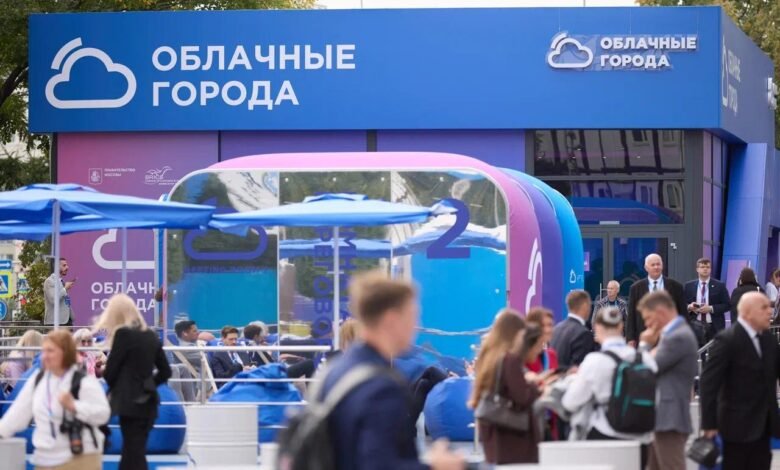Artificial Intelligence on Moscow’s Agenda: Building Smarter and More Human Cities by 2050

In a scene reflecting the accelerating pace of urban and technological transformations worldwide, the Russian capital hosted the “Cloud Cities Forum”, an international event dedicated to discussing the future of cities and urban governance by 2050. The forum, held at Moscow’s Cloud City Center, brought together leading global experts, policymakers, and researchers in the fields of artificial intelligence, urban planning, and sustainability, making it a unique platform for envisioning the cities of tomorrow in the era of the digital revolution.
Artificial Intelligence at the Heart of the Debate
From the opening session, it was clear that artificial intelligence (AI) dominated the agenda. Speakers unanimously agreed that the cities of 2050 will not be built from bricks and concrete alone, but also shaped by intelligent algorithms capable of managing resources, monitoring consumption, and enhancing quality of life in unprecedented ways. Several scientists presented experimental models on how AI can be applied in smart transportation systems, efficient energy distribution, and reducing carbon emissions.
From Imagination to Reality: Cloud Cities
One of the most striking themes was the concept of “cloud cities”—virtual cities built on a fully integrated digital twin of each real city. These digital replicas go far beyond simulating streets and buildings, incorporating precise data on residents, mobility patterns, daily consumption, and even public health. According to organizers, the aim is to enable leaders and decision-makers to test policies virtually before implementing them in the real world, reducing risks and increasing chances of success.
Cities That Remain Human Despite Technology
Despite the overwhelming presence of technology, many speakers stressed that smart cities cannot succeed if they lose their human dimension. A Russian expert remarked, “AI may design the streets, but it is people who bring them to life”, emphasizing the importance of balancing technological efficiency with social justice.
In this context, critical issues such as privacy protection, equal opportunity, and preventing intelligent systems from dominating vital human decisions were widely discussed.
Three Key Pillars for the Cities of 2050
On the sidelines of the forum, three main pillars expected to shape the future of cities were presented:
1. Smart Governance: AI-based systems capable of making decisions on resource management, security, and public health, while ensuring transparency and accountability.
2. The Digital Twin: A virtual counterpart for every individual and building, offering personalized recommendations to residents and improving service efficiency.
3. Human–Technology Integration: Embodied in wearable smart devices such as lenses or medical bracelets that monitor health and deliver instant solutions.
Challenges Facing Tomorrow’s Cities
The forum went beyond futuristic dreams, addressing the serious challenges confronting cities of 2050. Climate change, rapid population growth, economic crises, and rural-to-urban migration all cast their shadows over discussions. Participants emphasized that any future project must be sustainable and resilient, able to adapt to these pressures without losing its human essence.
Saudi Arabia at the Center of the Debate
Saudi Arabia’s participation drew significant attention through the presentation of the NEOM project, which several experts described as a living example of future cities. Contributions highlighted how ambitious initiatives like NEOM can serve as global testbeds for AI-driven and sustainable solutions, making the project a prominent point of reference throughout the forum.
Toward a Shared Vision
As the forum concluded, participants converged on a central message: the cities of 2050 must reflect a balance between technology and humanity. While AI will lead the charge in development, it is not meant to replace humans but rather to act as a supportive partner. Agreements were reached on the importance of strengthening international cooperation and establishing shared regulatory and ethical frameworks to ensure that technology remains a tool serving humanity, not the other way around.
A Future Being Shaped Today
The Cloud Cities Forum in Moscow was not just an academic or technical event, but a platform for launching ideas that could shape the next generation of cities. From AI systems managing daily life to digital twins mirroring health and decision-making, it became evident that the cities of 2050 will merge science fiction with tangible reality.
As the world watches closely, cities like Moscow and Riyadh are positioning themselves at the forefront of the race to define the future of urban life.




